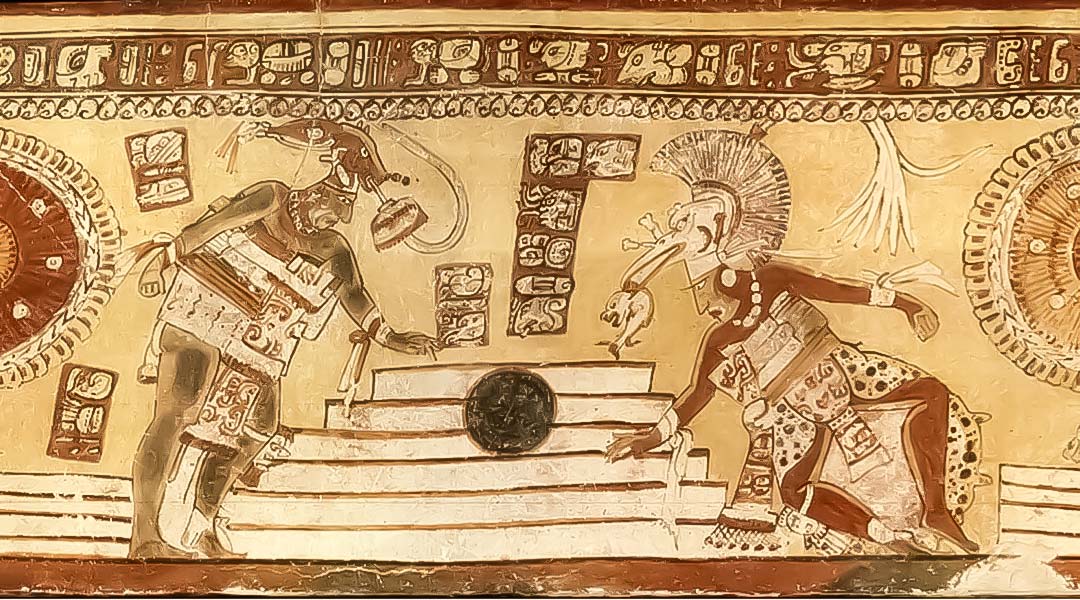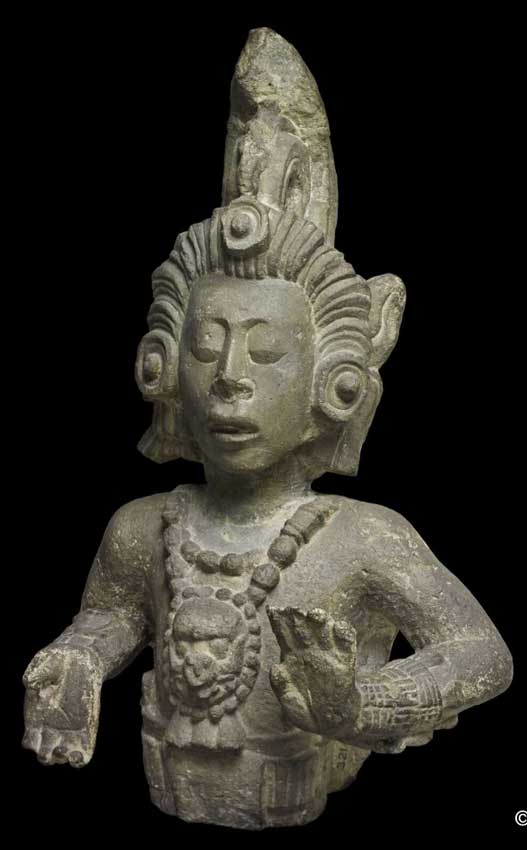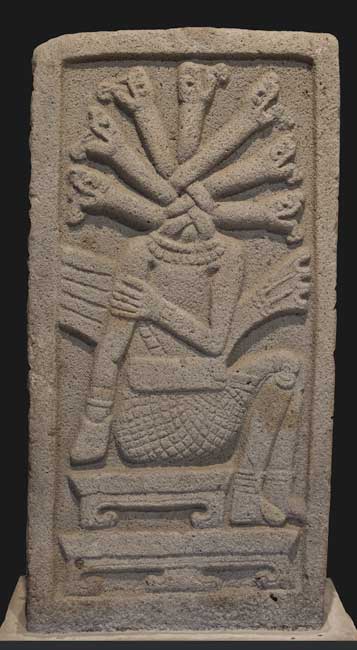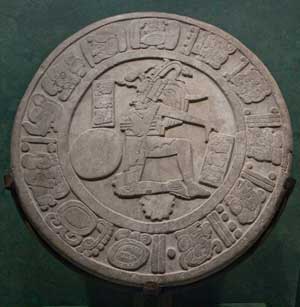Workshop on the Mesoamerican Ball Game
9 – 14 October 2023
Join us for a week-long online exploration of the inner meaning of the Mesoamerican Ball Game. We will meet for six consecutive days to study the origins of this ritual, its appearance in the Mayan Book of Council The Popol Vuh, it’s astronomical significance, and how this spectacle represented the struggle between the opposing forces of day and night, good and evil, and life and death. Each session will span about two hours with an intermission, and will conclude with a practical exercise for the following day. The group’s verifications will lay the groundwork for the next session. The meetings will be recorded and made available for viewing afterwards.
Read more about some of the highlights below:
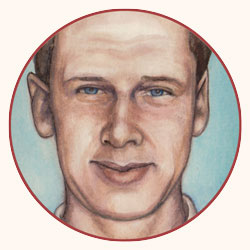
The Agricultural Revolution
The Popol Vuh is the ancient myth that chronicles the primordial creation and consequent lineage of the Quiché people indigenous to the Americas. In Pre-Columbian times, these were associated with the Mayan civilization. Ancient creation myths often appeared in conjunction with the Agricultural Revolution and narrated in symbolic terms the transition from hunting and gathering, to agriculture. We will approach the Popol Vuh from this standpoint, aiming to understand what was necessary to achieve this transition, and its consequences.
According to the text, two generations of twins, both ball-game players, are challenged by the lords of the underworld to a match. One interpretation of this story is that the ball and its movement in the court represents the movement of heavenly bodies in the sky. The game replicates a battle of the sun against the moon and stars. Central to this challenge is the Maize god (corn being a staple crop for the Quiché). In the course of the challenge, the Maize God is decapitated and then brought back to life, symbolizing the cycle of growing and harvesting corn. The victory of the Hero Twins over the lords of the underworld liberates maize and allows the story of humankind to proceed.
Maya Maize God wearing a headdress in the form of a stylized ear of corn | AD 600 – 800
This is the beginning of the ancient traditions of this place called Quiché. Here we shall write. We shall begin to tell the ancient stories of the beginning, the origin of all that was done in the citadel of Quiché, among the people of the Quiché nation.
Opening lines of the Popol Vuh
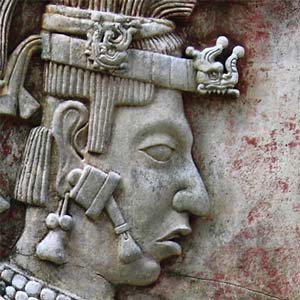
Sacrificed ball player | Anthropolgy Museum of Xalapa, Mexico
Payment & Sacrifice
The principle of sacrifice created a duality that underlay the Mesoamerican world view: living beings create sacrificial death, and sacrificial death creates life. The ritual ballgame itself enacted this duality, in the sense of not simply winning and losing, but also living and dying. Death always won, sacrifice was always made, and life was always renewed.
Players of the Mesoamerican ballgame reenacted the deeds of the Hero Twins in the Popol Vuh, who were challenged by the lords of death, and triumphed over them. As the sun defeats the night each dawn, so does the ball-players’ sacrifice and offering of blood in the court enable the plants to germinate anew and assure the sustenance of their people. Moreover, it is thought that the ballgame was practiced during the dry season, as a necessary sacrifice to bring the rains crucial for agriculture.
We will explore the way psychological manifestations of sacrifice are a means for regeneration.
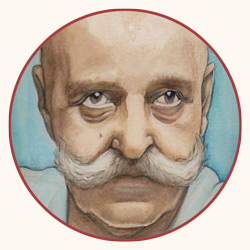
Without sacrifice nothing can be attained. But if there is anything in the world that people do not understand it is the idea of sacrifice. They think they have to sacrifice something that they have… In actual fact they have to sacrifice only what they imagine they have and which in reality they do not have. They must sacrifice their fantasies.
The Ball Game
In the Quiché language, the word for ‘ballcourt’ and ‘tomb’ are the same. This links the ballcourt with the underworld. The ballgame allows the possibility of resurrecting from the underworld. The moral behind the Hero Twins’ triumph over the lords of death is that life eventually triumphs over death and the cosmic order is maintained. The sun and the stars may temporarily descend into the Underworld, but they reliably return from it once more.
The sun, moon, and stars represent much larger cosmoses than the micro-cosmos human being. Incorporating them into a ballgame connects these two scales as if humans can have some kind of influence on the bigger cycles, or at least have some relation to their outcome. We will explore the inner meaning of this approach.
Ballgame Scoreboard | Anthropological Museum in Mexico City
The lords of Xibalba heard them: “What is happening on the surface of the earth? They are just stomping about and shouting. May they be summoned here therefore. They shall come to play ball, and we shall defeat them. They have simply failed to honor us. They have neither honor nor respect. Certainly they act arrogantly here over our heads,” said therefore all those of Xibalba.
The Popol Vuh

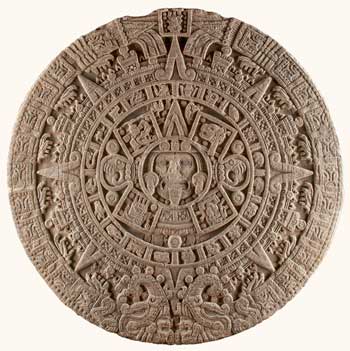
Aztec Sun Stone | 1502 – 1521 AD
Time & Generations
Higher cosmoses delineate time for cosmoses beneath them. From our standpoint, the rotation of the earth around its own axis marks a day, the waxing and waning of the moon marks a month, and the earth’s orbit around the sun marks a year. In this respect, the ballgame is intimately associated with time.
Time is measured differently in different cosmoses. While the smallest unit of time for the micro-cosmos human being is the breath, the smallest unit of time for a civilization is a generation. It takes two generations of twins to conquer the lords of the underworld. The first is defeated and sacrificed; the second builds on its predecessor’s experience and triumphs.
However, time does not guarantee progression. That a human being breathes does not mean they develop, nor that they reach their last breath in any better position in relation to death than they were at their first breath. We will study the significance of advancing through time, and the possibility of regeneration for the micro-cosmos human being.

When a truly great lord dies… [his son] is his essence. If his son becomes a lord, or a sage, or a master of speech, then nothing will have been lost. He will go on, and once more become complete. The face of the lord will not be extinguished nor will it be ruined. The warrior, the sage, the master of speech will remain in the form of his daughters and his sons.
The Popol Vuh


